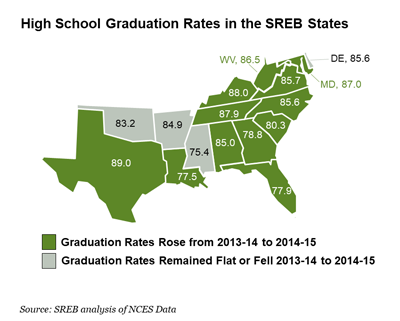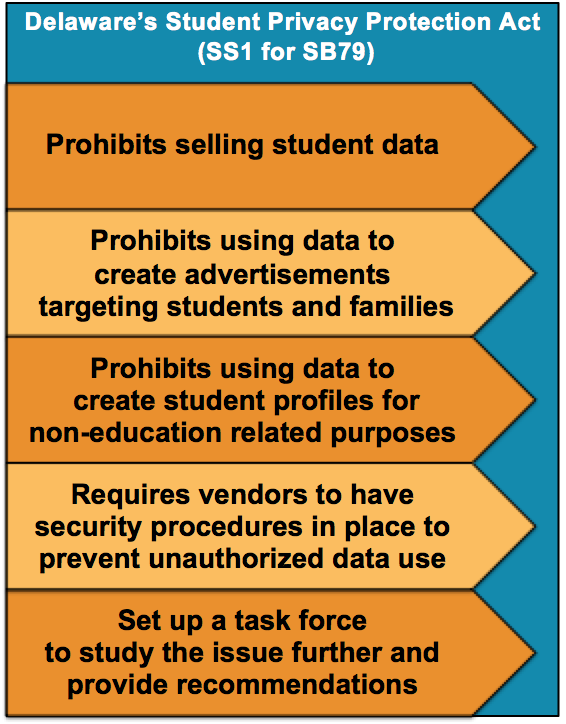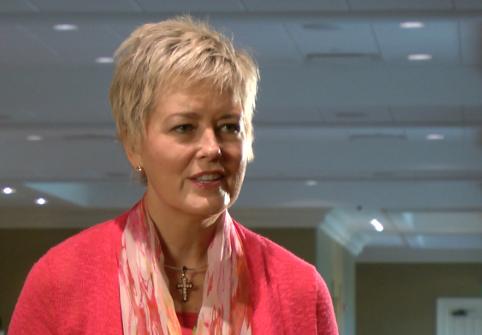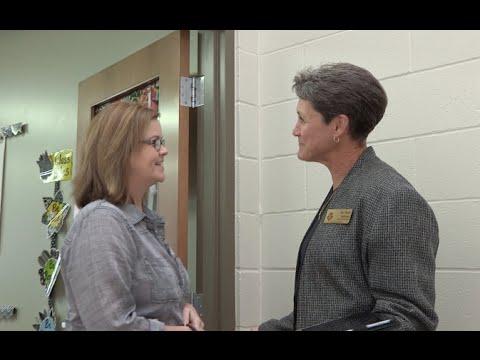Blog Main
In Alabama, High School to College Collaboration on Readiness
Community Colleges Partner with K-12 Schools to Get Ready
Kudos to the Alabama Department of Education and the Alabama Community College System for working together to increase student readiness among the state’s high school graduates.
Alabama is piloting the two SREB Readiness Courses to increase high school seniors’ preparedness for postsecondary studies, and the Alabama Community College System has endorsed the K-12 efforts.
SREB States Lead the Nation in High School Graduation Rates
Graduation rates are up again in states across the nation – and SREB states lead the pack once again in data released this week by the United States Department of Education.
 Graduation rates climbed in 11 of the 16 SREB states between the 2013-14 and 2014-15 school years. Ten SREB states tied or exceeded the national rate. Three of the SREB states were on the list of top 10 states: Kentucky, Tennessee and Texas.
Graduation rates climbed in 11 of the 16 SREB states between the 2013-14 and 2014-15 school years. Ten SREB states tied or exceeded the national rate. Three of the SREB states were on the list of top 10 states: Kentucky, Tennessee and Texas.
SREB’s Advanced Career: Investing in Tomorrow’s Workforce
Originally published on the U.S. Chamber of Commerce Foundation blog.
 Over the past decade there has been
widespread agreement that increasing student access to advanced
coursework is a good thing. It is good not only because it raises
the rigor of their education, but also because it promotes access
to college and helps students get a head start.
Over the past decade there has been
widespread agreement that increasing student access to advanced
coursework is a good thing. It is good not only because it raises
the rigor of their education, but also because it promotes access
to college and helps students get a head start.
Passing the Monday Morning Test
Maryland and Oklahoma Share Insights About the Ins and Outs of Program Implementation
Last month, we shared a run-through of the work by Maryland and Oklahoma to better prepare principals. When I was teaching first grade, many times I participated in professional development sessions that left me bursting with ideas and excitement but left me unsure about my ability to effectively execute what I had learned the next week in my classroom.
Broader ACT participation shows readiness gap more clearly
As more and more students take the ACT, we can see more clearly the gap between rising high school graduation rates and lagging college readiness.
Q&A: Advanced Career STEM Pathways
A Learning Experience for Students and Teachers
By Gene Bottoms, SREB senior vice president
What goes on in the Advanced Career classroom? A lot of math. Intense researching and reading. Most importantly, learning. The type of learning that remains in the forefront of students’ minds as they apply it to practical, purposeful projects.
Policy Paves the Way
Delaware's Data Privacy Task Force Gets to Work
Delaware is developing educators through the strategic use of pre-service training. Here’s how the state became poised for action:
Tapping Into Talent
Learning From Maryland's Promising Principals Academy
Sometimes it can be difficult to make the transition from knowing to doing when trying to apply concepts to ground-level practice. This often holds true for many kinds of learners – including students, teachers and even states. State education agencies know that principals play an influential role in the development of effective teachers and schools. But how can states build a strong foundation in order to prepare principals for this influential role? Similarly, practitioners can probably agree that in theory, inter-state collaboration yields great potential for learning. So how can they go about actually engaging in it?
My Powerful LDC Moment
“Metacognition is thinking about your thinking.”
We had just finished a module on Romeo and Juliet, adolescent brain research and decision-making when I was notified of a surprise visit from the state Department of Education.
Four Surprising Takeaways From the MDC Classroom
Why are my students able to answer questions correctly in class but unable to succeed on the assessment?
Visible Leadership Goes Far in Supporting Teacher Growth
Educator Effectiveness Spotlight
At an elementary school in rural Arkansas, principal Rocci Malone works closely with her teachers to set year-long goals and monitor their progress in improving aspects of their teaching.
Leaders from Southern states push to improve early education
Our understanding about early childhood development has grown by
leaps and bounds in recent years. New brain research tells us
that children’s brains form very rapidly early on, and their
earliest experiences have lifelong effects on their likelihood to
succeed.
Now it’s time to put what we’ve learned into practice so that our
young children get the best start possible.
Are you my teacher?
Teachers across the SREB region and the nation are wary of the use of student growth scores in their evaluations. How can they know with certainty that their evaluation score is a reflection of how they taught the students in their class?
Part-Time Students = 38% of Undergrads
Affordability Commission focuses on needs of adult and part-time students
Part-time college students made up 38 percent of undergraduates
in SREB states by 2013. Many part-time students work to pay their
living expenses as well as tuition, and the more hours they work,
the longer it takes them to finish, on average. Part-timers are
eligible for less financial aid, and they tend to file later,
missing early deadlines.
Tennessee Takes the Temperature
In spring 2014-15, 68 percent of Tennessee teachers reported that evaluation improves teaching in their school and 63 percent said it improves student learning. That is a drastic shift from when Tennessee became the first state to implement a statewide, multiple-measure teacher evaluation system that included a major student growth component in 2011-12. How did they get to where they are now?
Implementing Evaluation Systems: A Time for Teacher Voice
Many states have focused their efforts to improve schools and student achievement through the primary catalyst for change: teachers and school leadership. They have determined that more comprehensive teacher and leader evaluation systems are the vehicle for this improvement. With a focus on increasing student achievement, what is our purpose in teacher evaluation?
Tysza’s Tips for Observing Teachers
This presentation walks through the ups and downs of teacher reflection and growth through classroom observations — and how to make the most of them.
Pathways to Opportunity
High School to College and the Workplace
Labor market economists project that by 2020, two-thirds or more of all jobs will require some postsecondary education — either a certificate, a credential or a degree at the associate level or higher.
Applying lessons from public health to challenges in education
At our educator effectiveness convening, Emory University professor Dirk Schroeder described the positive deviance approach for studying positive outliers who can inspire solutions to implementation challenges in education.
The Critical Infrastructure of Early Learning
Birth to Books
What happens in a child’s first three years of life has deep and
long-lasting implications for success in school and life. Studies
show that how many words children are exposed to by age 3, their
mothers’ education level, and the stress of poverty are huge
factors in whether or not they are ready for kindergarten at age
5.









